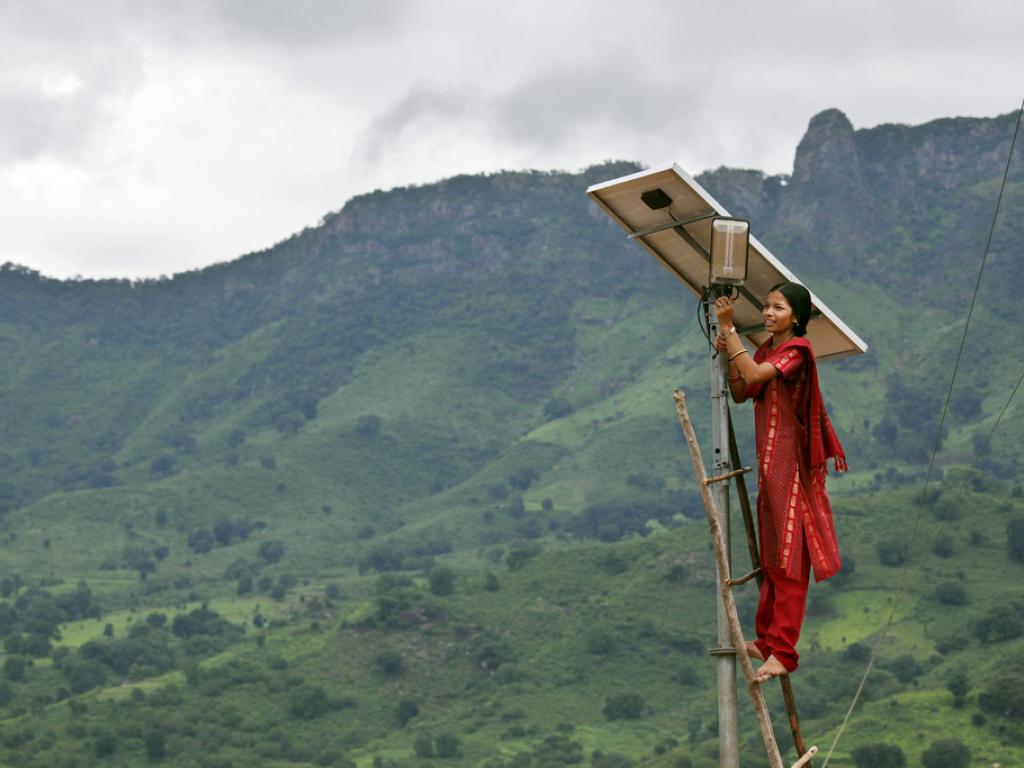Indigenous knowledge and climate change adaptation: The Way Forward

By Chidiebere Ofoegbu, Postdoctoral Research Fellow, Adaptation at Scale in Semi-Arid Regions 2017
Climate change and associated weather-related hazards are becoming more severe in terms of frequency and magnitude. Although climate change is a global phenomenon, its impacts and manifestation are entirely local. Hence the impact of climate change on a socioecological system will vary depending on the system's resilience. This often calls for concern, about the ability of local people, particularly in the developing world, to cope and adapt to climate change. Local people, however, have acquired knowledge systems that help them to cushion the effect of climate change. This knowledge system is often referred to as “Indigenous knowledge system”. The term indigenous knowledge system is defined by IPCC Fourth Assessment Report, working group II as, “the knowledge systems developed by a community as opposed to the scientific knowledge that is generally referred to as ‘modern’ knowledge. Local communities have often applied their indigenous knowledge systems in gathering, predicting, interpreting and decision-making in relation to climate variability and weather events.
Thus, indigenous knowledge is the basis for local-level decision-making in many rural communities. It has value for the culture in which it evolves. However, lessons from past experience of climate variability and extreme weather events across several developing countries, suggest two things: (a) the application of indigenous knowledge can sometimes be insufficient and ineffective, and (b) although indigenous knowledge is local, sometimes some household lack access to and awareness of the available indigenous knowledge system. Thus indigenous knowledge system is often differentially adopted by households even within a community. Although the effectiveness and efficiency of indigenous knowledge system is limited in dealing with climate change issues, they have however shown some level of success in providing households with low-cost means of coping with climate and extreme weather events. Thus, there is a need to understand sets of available indigenous knowledge system within a community, and establish means of strengthening them as a way of improving the community resilience.
In recent years, more and more people at the community level are beginning to adopt a combination of indigenous and scientific knowledge system in coping and adapting to climate change and extreme weather events. There are several examples from case studies across Africa, of farmers, livestock keepers, fishermen etc. using a combination of indigenous and scientific knowledge system in improving the resilience of their livelihood activity to the impact of climate change. In most developing countries, the integrated use of indigenous and scientific knowledge system to improve resilience to climate change is already taking place at the community level. However, there is little or no evidence of such integration at the national. Nevertheless, a growing number of scientists have cited the need for such integration. As noted by Robinson and Herbert (2001), incorporating indigenous knowledge into climate-change policies can lead to the development of effective adaptation strategies that are cost-effective, participatory and sustainable. The challenge going forward, for policy makers, researchers and practitioner would be how to achieve this integration. How can indigenous knowledge be mainstreamed into national climate change management strategy? What are the critical issues and challenges that need to be tackled in order to achieve this mainstreaming? These are the things we may have to think about going forward in order to preserve our indigenous knowledge system, making them available and relevant to our present situation and circumstances.
Disclaimer: The views expressed here are solely those of the author in their private capacity.
Image: DFID